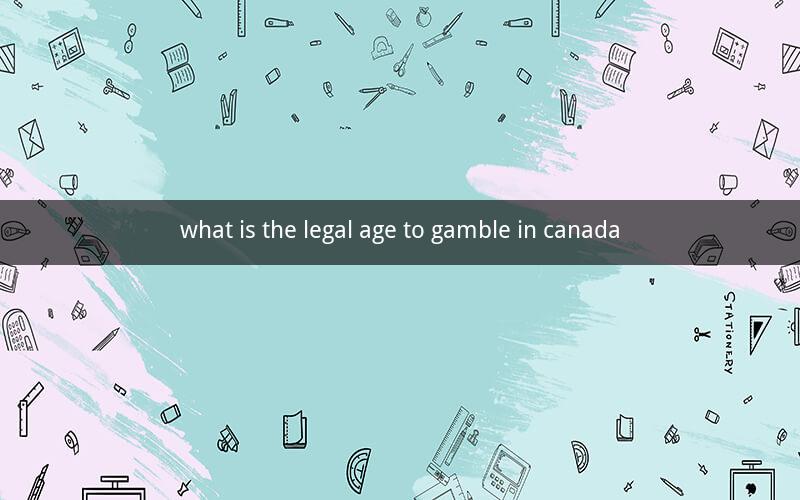
Table of Contents
1. Introduction to Gambling in Canada
2. The Legal Age for Gambling in Canada
3. Provincial Regulations on Legal Age for Gambling
4. The Reasoning Behind the Legal Age
5. The Impact of Legal Age on Responsible Gambling
6. Challenges and Concerns Regarding the Legal Age
7. Conclusion
1. Introduction to Gambling in Canada
Gambling has been a part of Canadian culture for many years. From lottery tickets to casinos, Canadians have always been interested in the thrill of gambling. The country has a diverse range of gambling options, including land-based casinos, online gambling sites, and sports betting. However, it is important to note that gambling in Canada is heavily regulated, with strict laws and regulations in place to protect players and ensure fair play.
2. The Legal Age for Gambling in Canada
The legal age to gamble in Canada varies by province. Generally, the minimum legal age for gambling is 18 years old, but some provinces have set it at 19 or 20. It is essential for individuals to be aware of the legal age in their province to avoid any legal repercussions.
3. Provincial Regulations on Legal Age for Gambling
Each province in Canada has its own set of regulations regarding the legal age for gambling. Here is a breakdown of the legal age for gambling in some of the major provinces:
- Alberta: 18 years old
- British Columbia: 19 years old
- Manitoba: 18 years old
- New Brunswick: 19 years old
- Newfoundland and Labrador: 19 years old
- Nova Scotia: 19 years old
- Ontario: 19 years old
- Prince Edward Island: 19 years old
- Quebec: 18 years old
- Saskatchewan: 19 years old
4. The Reasoning Behind the Legal Age
The legal age for gambling in Canada is designed to protect individuals from potential harm. By setting a minimum age, governments aim to prevent young people from developing gambling addictions and other related issues. Additionally, the legal age helps to ensure that individuals are mature enough to make informed decisions about their gambling activities.
5. The Impact of Legal Age on Responsible Gambling
The legal age for gambling plays a crucial role in promoting responsible gambling practices. By setting a minimum age, governments can educate young people about the risks associated with gambling and encourage them to make informed decisions. Moreover, the legal age helps to create a safer environment for all players, as it ensures that individuals are of legal age and can be held accountable for their actions.
6. Challenges and Concerns Regarding the Legal Age
Despite the benefits of setting a legal age for gambling, there are still challenges and concerns associated with this policy. Some individuals argue that the legal age is too high, as it may prevent young people from learning about responsible gambling at an early age. Others are concerned about the potential for illegal gambling activities to thrive in areas where the legal age is set too low.
7. Conclusion
The legal age for gambling in Canada is an essential aspect of the country's gambling regulations. By setting a minimum age, governments aim to protect individuals from potential harm and promote responsible gambling practices. While there are challenges and concerns associated with the legal age, it remains a crucial component of Canada's gambling landscape.
Questions and Answers:
1. What is the legal age for gambling in Alberta?
Answer: The legal age for gambling in Alberta is 18 years old.
2. Why is the legal age for gambling set at 19 in British Columbia?
Answer: The legal age for gambling in British Columbia is 19 to ensure individuals are mature enough to make informed decisions about their gambling activities.
3. How does the legal age for gambling in Manitoba compare to other provinces?
Answer: The legal age for gambling in Manitoba is 18, which is the same as in Alberta and Quebec.
4. What is the reasoning behind setting the legal age for gambling at 19 in New Brunswick?
Answer: The legal age for gambling in New Brunswick is 19 to protect individuals from potential harm and promote responsible gambling practices.
5. How does the legal age for gambling in Newfoundland and Labrador affect young people?
Answer: The legal age for gambling in Newfoundland and Labrador is 19, which helps to prevent young people from developing gambling addictions and other related issues.
6. What is the impact of the legal age for gambling on responsible gambling practices in Nova Scotia?
Answer: The legal age for gambling in Nova Scotia is 19, which promotes responsible gambling practices by ensuring individuals are mature enough to make informed decisions.
7. How does the legal age for gambling in Ontario compare to other provinces?
Answer: The legal age for gambling in Ontario is 19, which is the same as in New Brunswick, Newfoundland and Labrador, and Nova Scotia.
8. What is the reasoning behind setting the legal age for gambling at 18 in Quebec?
Answer: The legal age for gambling in Quebec is 18 to ensure individuals are mature enough to make informed decisions about their gambling activities.
9. How does the legal age for gambling in Saskatchewan compare to other provinces?
Answer: The legal age for gambling in Saskatchewan is 19, which is the same as in British Columbia, Manitoba, and Ontario.
10. What are the challenges and concerns associated with the legal age for gambling in Canada?
Answer: The challenges and concerns associated with the legal age for gambling in Canada include the potential for illegal gambling activities to thrive in areas where the legal age is set too low and the belief that the legal age may be too high, preventing young people from learning about responsible gambling at an early age.